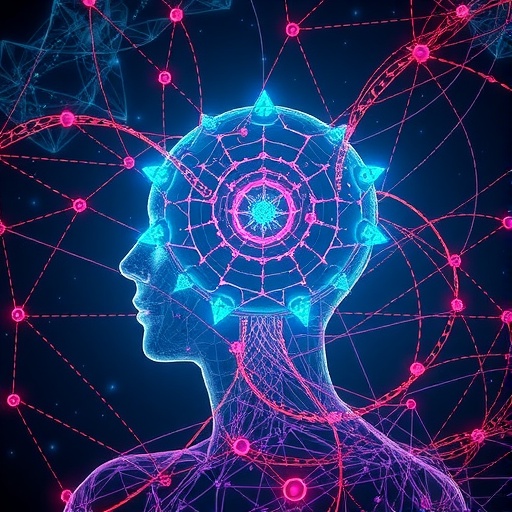As artificial intelligence and neurotechnology progress at an unprecedented pace, a critical dimension increasingly demands our attention: consciousness. Leading scientists at the forefront of this discourse warn that while technological advancements rapidly redefine the boundaries of what machines and neurodevices can do, our understanding of consciousness—what it is, how it arises, and how it can be reliably identified—lags dangerously behind. This growing disparity not only challenges scientific inquiry but also poses profound ethical questions with tangible consequences for medicine, law, and society as a whole.
In a seminal article published in Frontiers in Science, eminent researchers Professors Axel Cleeremans, Anil Seth, and Liad Mudrik illuminate the urgent need for a renewed scientific approach to consciousness. They argue that consciousness science must evolve beyond fragmented theories into a robust interdisciplinary domain that bridges cognitive psychology, neuroscience, artificial intelligence, and philosophy. As AI systems grow increasingly sophisticated—mimicking facets of human cognition and potentially artificial consciousness itself—the necessity for precise, scientifically grounded metrics to detect consciousness becomes paramount.
Central to their discourse is the notion that current AI and neurotechnological innovations risk outpacing the ethical frameworks meant to govern them. Without a concrete understanding of what consciousness entails and how to assess it across biological and artificial entities, society may be ill-equipped to address profound questions: Which machines, if any, should be afforded moral consideration? How do we differentiate between unconscious automation and genuine sentience? Furthermore, the ethical treatment of patients in vegetative or minimally conscious states hinges on reliable consciousness detection, affecting decisions about care, rights, and interventions.
The authors propose that advancing consciousness research demands rigorous, theory-driven explorations supported by adversarial collaborations. Such collaborations—where experts with divergent views iteratively challenge and refine hypotheses—are crucial for overcoming entrenched assumptions and methodological biases. Moreover, innovative experimental methods leveraging neural imaging, computational modeling, and machine learning techniques can push the boundary closer to operational definitions of consciousness that facilitate scientific testing.
These scientific developments carry the potential to revolutionize fields as diverse as clinical neurology, where precise understanding of a patient’s subjective awareness is pivotal, and AI research, where the quest for artificial consciousness tests the limits of computation and cognition. By integrating empirical findings with ethical scrutiny, researchers envision frameworks capable of guiding responsible innovation—addressing legal ramifications and ensuring human-centered AI development that respects autonomy and dignity.
The stakes are heightened by emerging neurotechnologies that interface directly with the brain, offering both unprecedented therapeutic opportunities and new ethical dilemmas. Brain-computer interfaces and neuroprosthetics, for instance, blur traditional boundaries between human agency and machine augmentation. Understanding consciousness within these hybrid systems is essential to safeguard identity, consent, and mental privacy.
Additionally, animal consciousness studies potentially benefit from refined scientific tests emerging from this interdisciplinary effort. As researchers develop more sensitive metrics that transcend anthropocentric biases, they can better assess the awareness and suffering of non-human species, impacting fields from conservation biology to animal welfare and legal protections.
The upcoming Frontiers Forum Deep Dive webinar scheduled for 25 November 2025 will convene these thought leaders to discuss the trajectory and implications of consciousness science. The forum aims to foster dialogue among researchers, policy makers, and innovators, emphasizing the transformative nature of this field and its critical role in shaping ethical guidelines for technology and medicine.
Underlying this discourse is the recognition that consciousness remains one of the most enigmatic frontiers in science. Despite decades of neuroscientific and psychological research, no consensus theory fully explains how subjective experience arises from neural processes. Exploring this mystery is not merely academic; it is foundational to addressing pressing societal questions raised by AI and neurotechnology’s rapid integration into everyday life.
As artificial consciousness moves from speculative fiction toward scientific possibility, the responsibility borne by researchers and ethicists intensifies. This responsibility includes not only defining consciousness but also developing robust, falsifiable tests that can discern conscious states across diverse substrates—be they carbon-based brains or silicon circuits.
In conclusion, bridging the gap between technological prowess and philosophical understanding is imperative. Consciousness science must evolve through concerted multidisciplinary efforts, uniting experimental rigor with ethical foresight. In doing so, it promises to illuminate new aspects of human and machine minds alike, guiding policy and practice in an age where the line between organic and artificial consciousness increasingly blurs.
For those eager to explore these developments in depth, the article authored by Professors Cleeremans, Seth, and Mudrik delivers an insightful roadmap toward this new scientific horizon. Their call to action underscores a pivotal moment—one in which understanding consciousness ceases to be a mere philosophical pursuit and becomes an urgent scientific and ethical imperative.
Subject of Research: Consciousness science, AI ethics, neurotechnology, artificial consciousness
Article Title: Consciousness science: where are we, where are we going, and what if we get there?
News Publication Date: Not explicitly stated; webinar is scheduled for 25 November 2025
Web References:
Frontiers in Science article: http://dx.doi.org/10.3389/fsci.2025.1546279
Webinar registration: https://events.frontiersin.org/consciousness-science/eurekalert
References: Available within the article DOI linked above
Keywords: Consciousness, Cognitive psychology, Affective neuroscience, Artificial intelligence, Artificial consciousness, Machine learning, Neurotechnology, Ethical implications, Clinical neuroscience, Animal consciousness, Legal issues, Medical ethics
Tags: artificial intelligence ethicscognitive psychology and AIconsciousness scienceethical implications of AIfragmented theories of consciousnessfuture of consciousness researchinterdisciplinary approach to consciousnessmeasuring artificial consciousnessneurotechnology advancementsprofound questions in neurosciencetechnological impact on societyunderstanding human cognition





